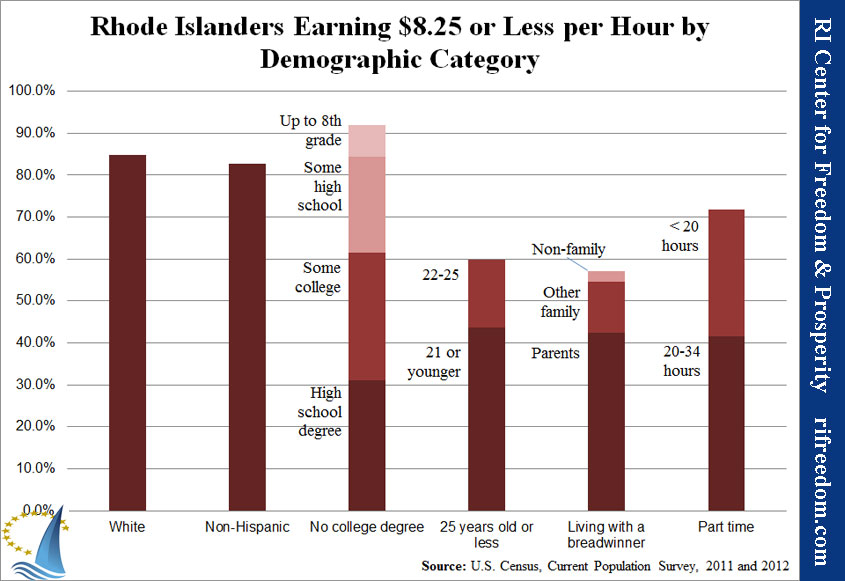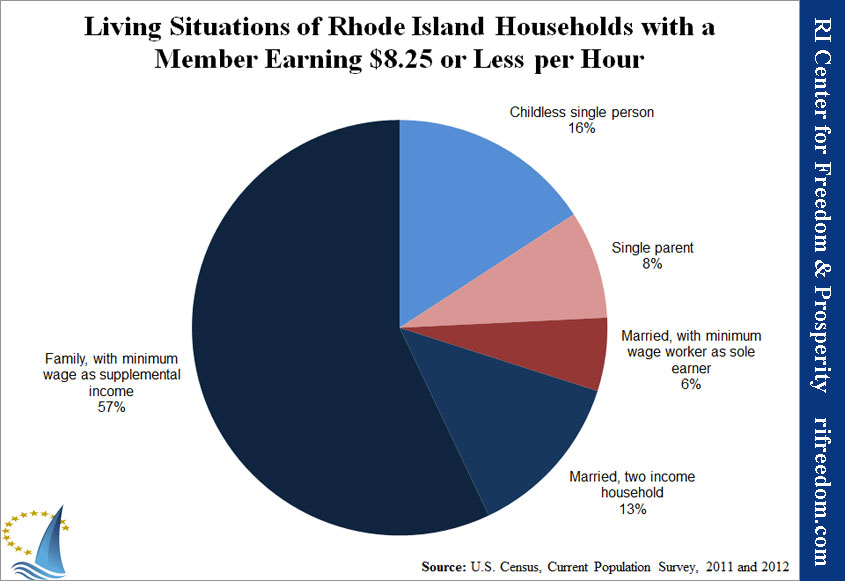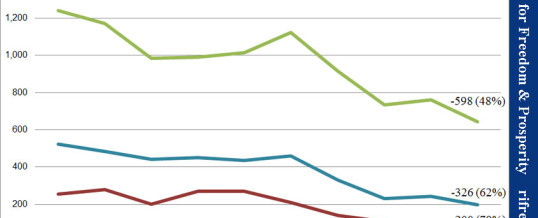Why Rhode Island needs a Default Mens Rea Provision
Download a PDF of the 2013 policy brief here ; related Senate Bill No. 414; related 2012 policy brief
2014 GoLocalProv Article – on “Dumb” Providence ordinances
2013 GoLocalProv article – on “50 Dumbest” RI Laws
Background
The rapid expansion of criminal laws in modern day jurisprudence requires a default mens rea (criminal intent) provision to ensure innocent citizens are not given serious criminal penalties for conduct outside the realm of traditional criminal laws.
Every state should be careful when seeking to convict its citizens of crimes without the government proving that he or she intended to violate a law or knew that his or her conduct was unlawful. Many states are moving to protect its citizens from unjust punishment because of ambiguous and poorly-drafted criminal offense statutes.
Nationally, there are fourteen states that have a default mens rea provision similar or identical to that found in §2.02(3) of the Model Penal Code: Alaska, Arkansas, Delaware, Hawaii, Illinois, Kansas, Missouri, North Dakota, Ohio, Oregon, Pennsylvania, Tennessee, Texas, and Utah. Four other states facially require a mental state without a default mens rea.
Close to Home: Examples in Rhode Island Statutes
1) It is a fineable offense, with no requisite mental state, to use the terms “fresh eggs,” “strictly fresh eggs,” “new-laid eggs,” or similar words or descriptions when selling eggs, unless the eggs are consumer grade A or better. R.I. GEN. LAWS §21-17-10, §21-17-6.
What about a farm stand owner who sells “fresh eggs” but doesn’t know to check if they are consumer grade A or better?
2) It is an offense to own a billiard table without a license, and no intent requirement is included. The fine is either $20 or three months of imprisonment. R.I. GEN. LAWS §5-2-12.
What if a bar owner puts a pool table in his facility without knowing of this requirement?
3) It is an offense to sell footwear which has been imported from a foreign country without notifying each person purchasing or intending to purchase that footwear that it has been imported, by displaying in a conspicuous place, in letters at least as large as the figures indicating the price of the goods sold, a sign marked “Imported goods.” If the goods have an individual price marking, they shall also be marked with the words “Imported goods” or the country of origin. This offense carries penalties up to $500 or three months imprisonment, or both. R.I. GEN. LAWS §5.41.1, §5.41.2, §5.41.3.
What about garage or yard sales?
4) It is an offense to own a snowmobile or ATV without “a muffler in good working order which blends the exhaust noise into the overall snowmobile or recreational vehicle noise and is in constant operation to prevent excessive or unusual noise. The exhaust system shall not emit or produce a sharp popping or crackling sound.” The penalty is $100 or 90 days imprisonment, or both, for a first offense. R.I. GEN. LAWS §31-3.2-8, §31-3.2.10.
Does one single pop or crack create criminal liability? What if someone isn’t aware the muffler is required to “blend the exhaust noise” adequately?
Nationally: A Real Life Example of Over-Criminalization
George Norris, a resident of Houston, Texas, imported orchids as a part-time business. In 2003, federal agents raided his home and seized his belongings. Norris was prosecuted and imprisoned because he imported a few legal orchids into the United States with improper paperwork. Because Norris unknowingly committed this “crime,” he not only spent 17 months in prison, but he lost his business, retirement savings, and trust in the legal system.
Recommendations
Enact a Default Mental State in Rhode Island
Criminal laws in Rhode Island today cover a wide range of otherwise innocent behavior, from trading workout tips to transporting poultry, in statutes and administrative regulations.
Such criminal sanctions to regulate behavior sometimes do not include a requisite culpable mental state, opening up innocent actors to serious criminal sanctions for behavior that is not inherently wrong.
Enacting a default mental state provision would ensure that criminal sanctions are levied against the guilty while protecting citizens from unduly burdensome regulations and criminal laws. It would not alter any Legislative pronouncement of a requisite mental state, but merely supply the answer when the Legislature has not already specifically addressed it in codification in a particular criminal law.
This policy recommendation is not about letting violent, career criminals off the hook – this model is about reining in government’s zealous regulation and protecting innocent, hardworking Americans from the destruction of their businesses and livelihoods.
The Criminal Intent Protection will:
- Protect citizens from unjust charges or conviction
- Protect freedom and liberty for individuals and small business
- Strengthen our criminal justice system
How will a default mental state achieve these goals?
1) By protecting citizens from unjust charges or conviction:
- It will ensure that criminal offense statutes and rules include a criminal intent requirement.
- It will focus the criminal law on putting dangerous offenders in prison (murder, arson, rape, theft, and robbery)–-not putting hardworking Americans in prison who are unaware of vague and ambiguous law.
- Many non-violent criminal offenses, such as failing to comply with specific regulatory or reporting requirements, criminalize conduct that is not inherently wrongful.
- It will protect citizens from being criminally charged for an accidental mistake.
- Many of the offenses that do not include criminal intent requirements are paperwork violations and are created by un-elected, regulatory bureaucrats.
2) Protect freedom and liberty for individuals and small business:
- The average American, worker, and business have no hope of knowing the thousands of criminal-law statutes. They can find themselves facing expensive prosecutions and lengthy prison sentences for making honest mistakes.
- Will reserve criminal law for those who intended to commit a wrongful act – those who deserve the consequences.
- Will help to protect citizens’ businesses, livelihoods and reputations so they may contribute to, and strengthen, our economy.
- Any time lawmakers pass a criminal law that does not take into account criminal intent, honest hardworking citizens can find themselves facing prison time.
3) Strengthen our criminal justice system:
- When conduct that is not inherently wrongful is criminalized, it threatens and endangers the integrity of our criminal justice system.
- Criminal law should safeguard both liberty and security.
- Prosecuting and imprisoning one individual is costly to taxpayers and should be reserved for offenders who knowingly and willfully violated the law.
Conclusion
A default mental state would prevent unjust criminal sanctions for innocent behavior. It would protect citizens from oversights in legislative drafting and provide peace of mind for those taking part in wholly innocent and blameless behavior. It would not restrict the Legislature, but instead encourage it to speak clearly as to the guilty mind it thinks must be proven to obtain a guilty verdict.
Rhode Island citizens are currently without recourse if charged with a crime that should have a mental state included in its language but does not. A default criminal intent provision would restore the protection afforded to Americans for centuries.




